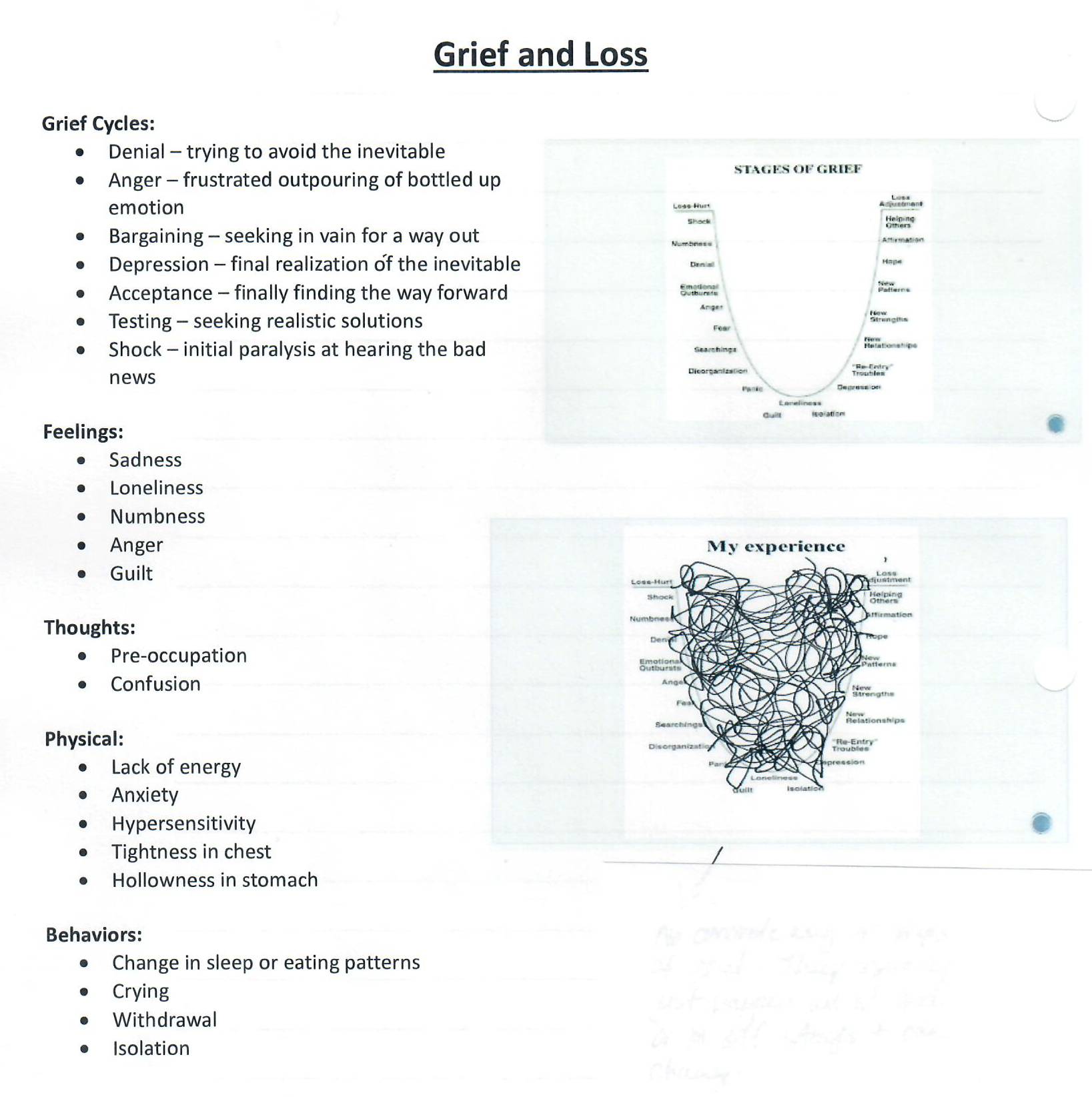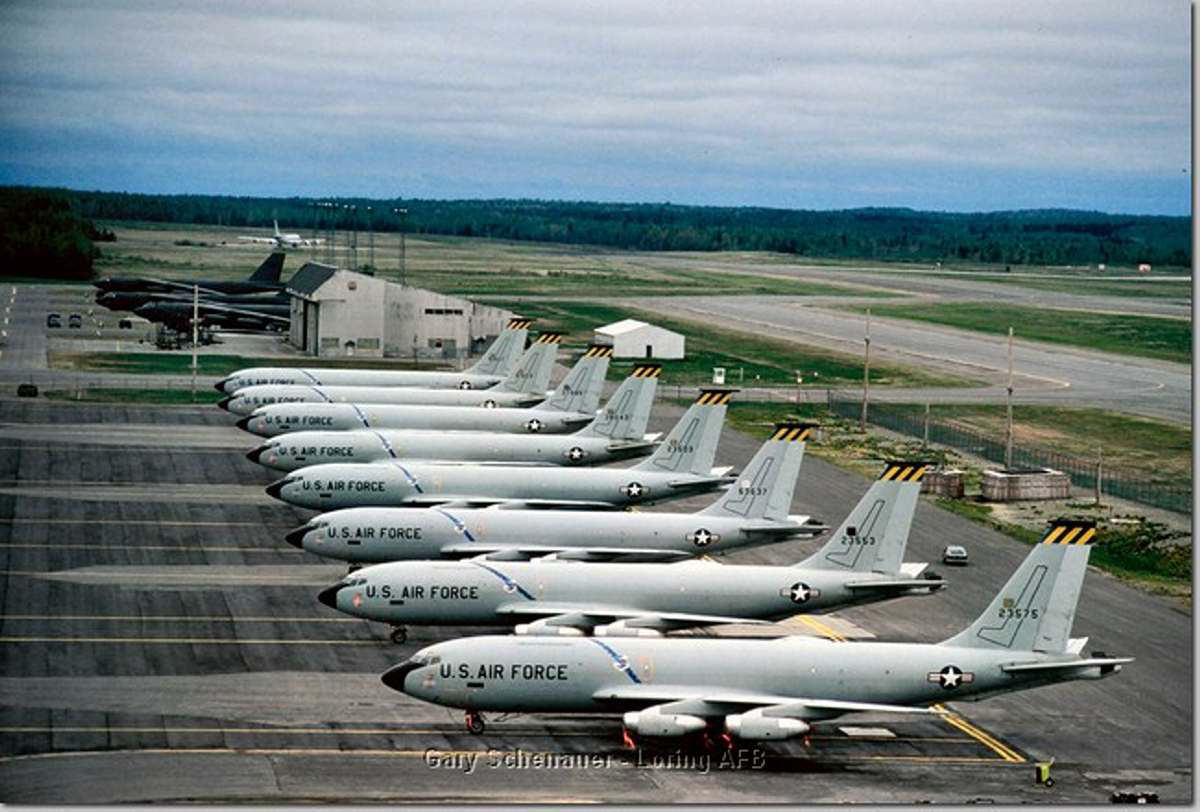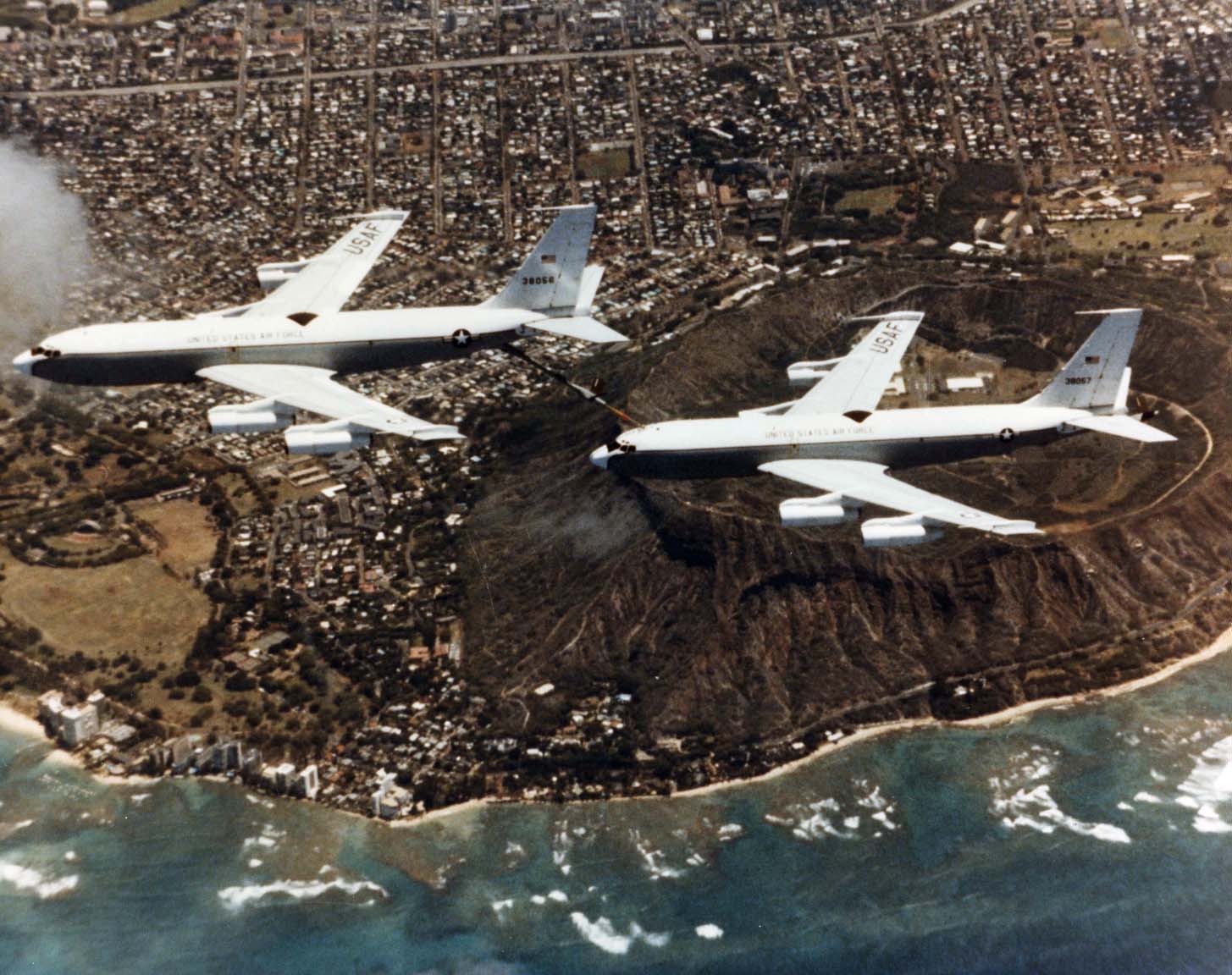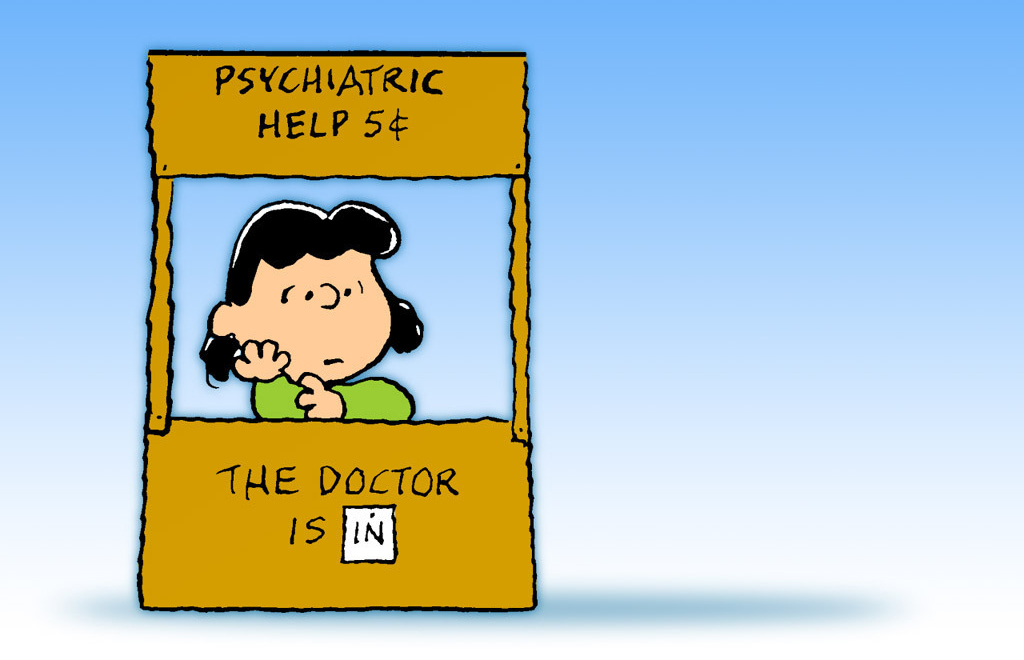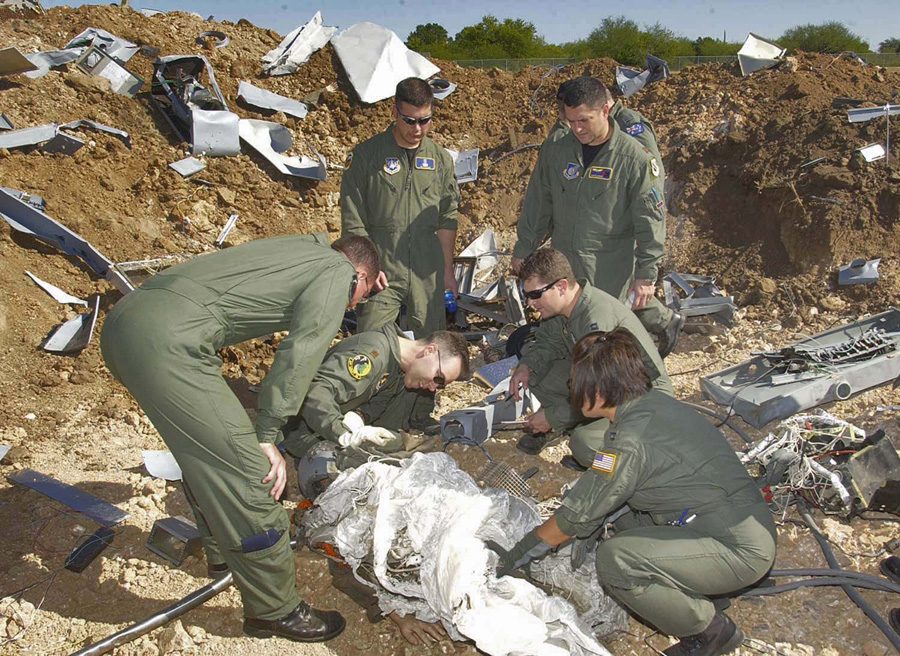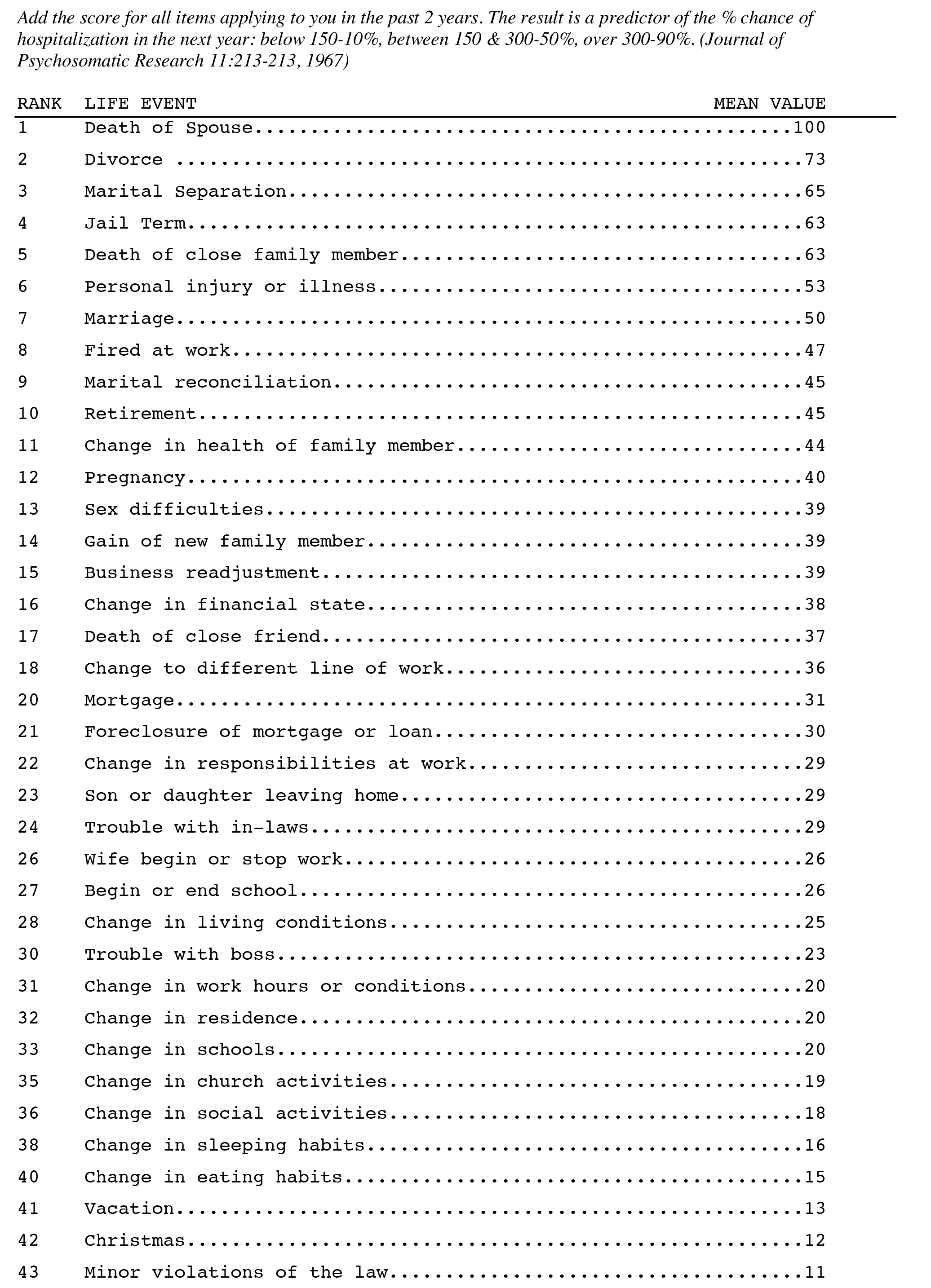"The Rules" are twenty-six ideas I've collected over the years that seemed relevant enough to life in general that I've written each down with a short story to reinforce each in particular. This is Rule Number Four.
— James Albright

Updated:
2018-09-16
I think I learned this rule while growing up with a mom who spoke very little English while my dad was overseas every few years as a Navy officer. When things around the house go wrong you deal with it, even if you are 15 years old.
But this particular lesson continues through life and only gets better. If I referred you to this story it is probably for the list I've ended up calling, simply, "The Stressors," which you can download here. The story behind them follows.
You've probably heard of the Five Stages of Grief. They are, of course, real. But we don't all experience them the same way, in the same order, or experience all of the stages. This fact by itself can cause even more grief. "Am I normal?" No matter how you experience grief, in the end you have to get on with life. "Deal with it" seems harsh when you are in the moment. But in the end, it is what you have to do. Some of these stories may seem petty compared to the word "grief." But that in itself is important too.

Stage 1
Denial
I think a basic education in engineering is what started my pragmatic view of life. Every problem has a number of variables. If you can figure out an equal number of formulas to describe the problem you will be able to solve for each variable. As strange as it may seem, this works in life too. You can take any large problem, break it down to its components, and then start solving for each component. But the key is you have to face each component. Denying a part of the problem will make the larger problem almost impossible to solve.
Being assigned to the squadron's "Leper Crew" was the first insult. The squadron commander promised to make it up to me if I could keep the crew's commander, Captain Don "Narco" Nelson, out of trouble for a year. "Narco," not because of drugs, but because of his tendency to nod off while flying. Yes, we were in desperate shape at Loring Air Force Base in 1981. With just a year as a KC-135A copilot, I was already "seasoned" by the base's standards. I had been assigned right after pilot training, right after a massive drug bust caught half the wing's copilots, navigators, and security police. The second insult came just a month after I found myself on the Leper crew.
"Two butter bars on the same crew isn't unheard of," I heard from the squadron's scheduler. "But on the Leper Crew? You be careful out there, James. Wrong Way graduated on the bottom of his class." It was madness. When I first heard Second Lieutenant Calvin Wong's "Wrong Way" nickname, I pushed back. Even though I am only half Japanese, I was the only Asian in the squadron. Doing the math, Calvin quadrupled the squadron's Asian-American count and I felt I owed it to him to stick up for us of the "yellow skin" variety. But I was soon disabused of my natural tendency to defend him.
"He got a gift pass on his check-ride at Nav School and again at tanker school," Captain Ben Neavis said. He was an early ally in the squadron and invited me to share his table one day for lunch while we were both an alert. He befriended me during my first tour on Strategic Air Command alert, chained to our KC-135A for seven days. I was bitterly disappointed to find he was being elevated to the squadron's senior crew as soon as Calvin showed up for duty. Ben was Captain Nelson's adult supervision until I showed up.
"What's a gift pass?" I asked.
"Haven't you noticed that no copilot or navigator has busted a check ride here ever since you showed up?"
"Maybe everyone meets the standards," I naively offered.
"Ever since the drug bust, nobody fails a check ride," he said. "Busting a copilot or navigator means everyone else has to fly those missions or pull more alert. Things aren't going to change until the manpower people are happy again. I heard Wong set a new low."
"So the 'wrong way' name is more than just racism?" I asked.
"Yeah," he said. "You be careful out there."
I was getting a lot of that in this squadron. Second Lieutenant Wong turned out to be every bit as bad as predicted. But as long as we were flying domestically I could figure out where we were with a trusty VOR or TACAN. Our few trips overseas were in formation with other tankers or bombers and we were never, mercifully, the lead aircraft. All of that changed when we were assigned to fly to Hawaii solo, in support of a local unit at Hickam Air Force Base, Honolulu.
"I heard the squadron has three palletized INS," I said to Captain Nelson as he reviewed our orders to Hawaii. "They are sitting in some warehouse, just waiting to be checked out."
"Nah," he said. "We'll be fine without one. No problem." The palletized inertial navigation system could navigate better than our navigators, but you had to make a case with the squadron commander to get one. They were normally reserved for senior crews flying the most critical missions. "No way they are going to give this crew an INS," Nelson said. This "leper" crew, I thought.
"How many times has he been lost just looking for the state of Maine?" I asked. "There aren't any navigation aids between California and Hawaii!"
"James, you worry too much. I've flown to Hawaii before. No problem."
A week later I was halfway between Los Angeles and Honolulu, two cities that are separated by 2,221 nautical miles of blue ocean. Looking at Wong's navigation charts did not inspire confidence. "Are these your lines of position?" I asked.
"Hey, leave my stuff alone," he said. "Get back in your seat."
"I'm just trying to learn," I said. I pointed to the three lines converging over the middle of our route. "Shouldn't that triangle be smaller?"
"Leave him alone, co," Nelson said.
"You heard the boss," Wong said. "Leave me alone."
"You worry too much, James."
"Sorry," I said.
"No problem." Nelson returned to his normal position, reclined as best he could in our non-reclinable seats with his eyes shut. Or course I was never trained to use the sextant and my only understanding of the three lines of position the navigator got from his sextant was that we could be anywhere inside of the resulting triangle. Having a navigational tolerance of 500 nautical miles wouldn't be good enough to find Hawaii.
With just over an hour to go I got a weak signal from the Maui VOR and another from Hilo. "We are 400 miles off course," I said to Wong over the interphone as Nelson slept.
"Those VORs aren't good enough to navigate from this far out," Wong said. He was right about that, of course. I next dialed up the Hickam Air Force Base command post on our long distance, high frequency radio. Neavis gave me one last technique, just in case.
"Request practice emergency DF position," I said. They should be able to hone in on our radio transmission from two different receivers.
"Give us a five count, up and down," the radio operator replied. After I did so, they asked me to standby. After another minute I had our position.
"Calvin," I said as the boss continued to sleep, "The DF position confirms we are 400 miles north of course. At this rate, we are going to miss Hawaii completely. If you don't give me a correction, I'm going to come up with my own."
"Fine," he said at last. "Turn left 50 degrees."
Fifty degrees! I turned the airplane. An hour later we coasted in, on course.
As we neared our top of descent point I shook Nelson's shoulder and he jerked up with a start. "Time to land?" he asked. That night at the bar he and Wong were all smiles. It was another mission under the belt. No problem.
Stage 2
Anger
They say you should never make a decision in anger and I think that is absolutely right. But anger is one of those things some people are prone to and that can be a problem. I don't think I've ever told this story in written form but it is one I like to talk about because it provides a lesson about how a proclivity towards anger can ruin lives.
I showed up to the Hawaii EC-135J (Boeing 707) squadron as the unit's only lieutenant. Of fourteen pilots, three were lieutenant colonels, three were majors, seven were captains, and then there was me, a first lieutenant. At first glance, every pilot appeared to be head and shoulders above anything I had ever seen before. The squadron was what the Air Force called a "special duty assignment." The mission was so important you couldn't leave it to the normal Air Force personnel assignment system to populate its crews. Everyone was a cut above. Everyone except Howie.
Captain Howie "Wowie" Alsop somehow snuck through the system. He showed up one day and failed his squadron checkout. But he managed to hang on and after five years remained as the squadron's oldest and most experienced copilot. In that time he managed to become a competent copilot, but not one who could be left unsupervised. I only had one flight with Howie Wowie, and it was enough.
I was in the right seat doing a series of touch and go landings at Kona Airport, on the west shore of the Big Island of Hawaii. Three of us copilots were cycling through the right seat as Major Don Wortham instructed from the left. The first copilot flew two instrument approaches and a visual. Then it was my turn. It had to be boring for Don: touch and go on Runway 17, right turn, touch and go on Runway 17, right turn, and so on. For each of my three the winds had shifted until the tailwind was nearing ten knots. Just as I was unplugging my headset to vacate the seat I heard tower announce the new active runway would be Runway 35. Howie Wowie took my place and Don gave him the airplane for the next visual approach. Touch and Go on Runway 35, right turn, right toward the volcano.
"Left turn, Howie," Don said.
"Right turn," Howie said.
"My aircraft," Don said, saving us from having to appear on the evening news.
That was Howie Wowie. His excuse for the day was he was thinking about his wife who had just filed papers for divorce. His previous excuse was that he had been passed over for promotion. The excuse before that was that his wife left him and took the kids. There was always an excuse. His next flight the following week was even worse, though that seemed impossible. Howie was grounded for a month of retraining. "I guess they want me to get my mind right," Howie told me as he stared at the same page on his flight manual for an hour. "They got it in for me." After a week he started hanging around the scheduling office. I watched as the scheduler added a new name to our pilot roster. A name that began with "Ann."
"A woman?" he yelled. "No way I'm flying with a woman!"
"I've flown with women," I said. "No different than men. Besides, it is the way the world is going. The days of the all male pilot force are coming to an end. You are going to be flying with women sooner or later."
"Well I'm not doing that!" he said. He picked up the phone and dialed a number from memory. We could tell from the first key presses that he was accessing the Defense Satellite Network, our version of long distance phone calling back then. "Let me talk to the EC-135 detailer." After a moment, "This is Captain Howard Alsop. I've got five years in Hawaii and I'll take any assignment back in the states." I refrained from pointing out Hawaii is one of the states. "I'll do that," he said finally. After he cradled the phone he got up. "Hope you men enjoy flying with the ladies."
Howie left the room, leaving only the scheduler and me. "That was convenient," the scheduler said. "The squadron commander asked Howie Wowie to find another job this morning and by golly he did."
I started Air Force pilot training two months after the first class of women pilots had graduated. I think at that point the Air Force had a total of ten female pilots. Each year the numbers increased but women were definitely few and far between. But that was changing. Howie Wowie had been in for eleven years and had another nine to go if he hoped to retire with a pension. In 1980 his chauvinism wasn't unheard of, but it was still unusual.
Howie's new assignment would be as a T-37 instructor pilot at Vance Air Force Base, Enid Oklahoma. Enid is about 2 hours north of Oklahoma City and maybe twenty years behind it. Howie Wowie was as happy as can be and within a month he was gone. Most of the squadron pilots were wondering if Howie could actually qualify as T-37 instructor pilot (he did), but I was wondering how he would react the first time he got assigned a female student pilot (badly).
I heard that his first two students were females, both of whom complained about his treatment and were reassigned. The training squadron did their best to isolate Howie Wowie from women until his two year commitment was up, but after he lost his temper with male students a few times his days flying airplanes came to an end. After a year flying a desk, the squadron asked him to find another assignment. At that point Howie Wowie had fourteen years on active duty and could have stayed in until twenty to collect a fifty percent pension, maybe $1,000 a month. His ex-wife figured that out too and lawyers contacted him to remind him of the fact. With fourteen years on active duty, Howie Wowie voluntarily separated from the Air Force with no pension at all, to prevent his ex-wife from getting any piece of it. I can imagine him saying, "that'll teach her!"
Stage 3
Depression
There is a certain karma to life, no doubt about it. After I survived the flight to Hawaii and back in the KC-135 with Captain Don Nelson and Lieutenant Calvin Wong, the squadron commander rewarded me with a crew change. "Wrong Way" finally busted a check ride and was given the additional training he needed and became, I heard, competent. Years later, when I upgraded to aircraft commander in the Boeing 707 (EC-135J) and was appointed my first crew, a new navigator showed up and given to me, as if a gift. That gift was newly promoted Captain Calvin Wong. He failed his first try at our squadron upgrade check-ride but after his second try he was pronounced again, in a word, competent.
After I upgraded to the left seat the grease pencil scheduling board enshrined me firmly in command of "Crew 5," a crew in need of an aircraft commander and a navigator for almost two months. Right after my name appeared, so did newly qualified Boeing 707 Navigator, Captain Calvin Wong. When he first showed up, I tried to keep the normally hostile peanut gallery from calling him "Wrong Way Wong," but Calvin's first check-ride revealed just how futile this effort would be. He was mostly competent, but something about performing with any other navigator in earshot made him forget his left from his right.
"Pilot, Nav, tanker is ten miles at your 1 o'clock."
The copilot and I looked at each other, and then at the tanker at our 11 o'clock. I didn't want to correct him on interphone, our radio operators were listening in on the interphone and the passengers could press a button to listen in too. It would have to wait. It was becoming a ritual for our post flight debriefs. The crew would sit down, I would go through the required checklist and anyone who had to chime in, would chime in. Then everybody except Calvin would leave and we would have our heart to heart counseling session. The separate debrief was to spare Calvin any embarrassment, but he ended that one day when someone asked why he wasn't getting up. "I have to get my ass chewed again."
"Calvin," I said at our next pilot to nav ass chewing, "where does the tanker always show up during a point parallel rendezvous?"
"At one o'clock," he said, "on our left."
"Calvin," I said, "look at your watch and tell me which side one o'clock is."
Calvin looked at his watch, which was analog. "I guess I made a stupid mistake."
Most of Calvin's mistakes were in the stupid category. "But now you know," I said. "And Calvin, this isn't an ass chewing. This is you and me learning to be better."
"Yes, sir," he said.
"Calvin, we are both captains. You don't have to call me sir."
"Yes, sir," he said.
And so it went. In the next six months we never failed to have one of these talks after a flight. I never raised my voice, never called him anything other than Calvin, and held my sarcasm in check. Calvin showed slow improvement in all areas, but he continued to be a work in progress. That work came to halt after I wrote Calvin's first officer effectiveness report, about a year after taking over the crew. There is a definite art to writing a negative OER. You cannot say anything negative, but you have to telegraph the idea that the barely competent officer is barely competent. "Captain Wong is a competent navigator." That summed it up and would guarantee he would never be promoted. (You cannot advance as an Air Force officer if competent is all you are.) Calvin was thrilled that I called him competent and the squadron was thrilled they now had a mechanism for stopping his career. The situation was well in hand until I got called in to see the base psychiatrist.
"Captain you must stop yelling at young Calvin," the colonel said. "Just because someone doesn't reach your level of perfection doesn't mean they are not good at what they are doing."
"Sir, he often forgets his left from his right," I said as calmly as I knew how.
"Is that a cardinal sin?" the doctor / colonel / psychiatrist asked.
"It is for a navigator, sir."
"And that's another thing, captain. You shouldn't yell."
"I'm not yelling," I said.
"You are yelling with your tone of voice."
Calvin got a week off from the schedule to recover from his trauma. When we started flying again we spent our post debriefs talking about life, his feelings, and ways to get better. "Maybe you can ride along with the other navigators now and then," I suggested. "Take a look at how they do their jobs."
"I don't think they like having me around," Calvin said. "I don't think anyone likes having me around."
I soon left the crew and for the next few years would get calls from his future aircraft commanders asking for advice on how to keep Navigator Wong on course. One of them said they wrote "LEFT" and "RIGHT" on his gloves and that took care of one problem, at least. I heard Wong was eventually discharged for something just short of medical depression. He is now a mail carrier who walks a quiet route on the north shore of Oahu.
Stage 4
Bargaining
There are times when life hands us a situation that leaves us with no options. We spend a lot of time and effort trying to negotiate the nonnegotiable when it might be better to just make the best of the hand we are dealt. In 1984 I was coming up on three years stationed at Hickam Air Force Base, just five miles south of the town of Aiea, Hawaii. Aiea is where I grew up; it was an ideal assignment. Of course the Air Force was determined to move me at the three year point. That's how 1984 became the "Let's Make a Deal" year for me.
The normal tour at our Hawaii squadron was three years. Most pilots came in as captains and highly experienced copilots and left as seasoned aircraft commanders. A few of those would be elevated to instructor pilot. Since I came in very young (and a lieutenant), my prospects were not so bright. I made it to aircraft commander and started thinking about upgrade to instructor when the Air Force Military Personnel Center (AFMPC) started calling, saying my services were needed elsewhere.
"I'll do my best to fend them off," Lieutenant Colonel Tom Swede said, "but it's a losing battle." I knew he was right, there was only so much a squadron commander could do. Right about then the Air Force Test Pilot School called to say my name came up in a list of engineering graduate pilots and that I could have a slot if I wanted one. Of course I said that I wanted to stay in Hawaii. Then came a call from Tinker Air Force Base in Oklahoma, where they had an E-3A Airborne and Warning Alert System (AWACS) with my name on it. As each assignment came, I was able to fend off the headhunters from AFMPC. But that came to an end after something bad happened in another part of the Pacific Air Force (PACAF).
"It was the third crash of an F-16 this year," Swede announced to the squadron at our monthly commander's call. "It may be a fighter and it may not seem to be a concern of ours, but it is. PACAF has ordered that every base have a safety school graduate from every base, and that includes ours." There was a collective groan. "I am accepting volunteers but someone from this squadron will be going next month."
Of course there were no volunteers. The Accident and Mishap Investigation Course (AMIC) was two months long, had a wash out rate because of the math required, and carried with it a two-year commitment. I still owed Uncle Sam a year for my move to Hawaii, which would run concurrently. But that still meant another year where I couldn't leave for the airlines and was at the mercy of the assignment system. The other pilots were calculating the same math and coming up with the same answer.
"You need to do this," Swede said while I sat in his office with the door closed. "I didn't say this to the rest of the squadron, in case we had a volunteer. But PACAF had two washouts from AMIC last year and said preference would be given to any engineer."
"Does that mean a forced assignment?" I asked.
"It does," he said. "You can fight it, but in the end you will lose and earn a reputation as a future airline pilot. That is never good."
I wasn't sure I wanted to be an airline pilot but I wanted to keep my options open. But my biggest fear was that I would forever be typecast as a safety officer, destined to be trapped in that career field. But there were no other options. I took the assignment. Two months later I graduated from AMIC and returned to the base where I left the squadron to become the wing's chief of flight safety. But within a year PACAF crashed another F-16, this time on an instrument approach. The new call to action was to have a graduate of the Air Force's Instrument Instructor Course at each base. Yet again, "preference" was given to engineers. I was upgraded to instructor pilot and sent off to another school to became an Air Force certified instrument instructor pilot. That led to my elevation to the base's chief pilot and that led to my selection to fly the Boeing 747.
I'm sure I didn't invent the rule but it certainly applies here. The rule is:
"Bloom where you are planted; talent is rare and cannot be ignored."
I first thought of it back in the days I flew with Captain Nelson. More about this: The Leper Crew.
Stage 5
Acceptance
In 1988 I was an Air Force Boeing 747 pilot, a captain in rank but a copilot by crew position, and I was very ill and spent two months in a hospital. Hospital? What was it? It was a big brick building with doctors, nurses, and patients. But that isn't important. What is important is I came down with cancer and was told I had only a year to live. More about that here: No Pulse.
I obviously beat the one year odds and the doctors told me I was good to go for five years. It was almost like being a spaceship attempting to achieve earth orbit prior to being cleared for its eventual flight to the moon. "You are go for throttle up!"
After I returned to the squadron I was returned to flight status after a year, upgraded through the ranks to instructor pilot and got promoted to Major. My next assignment was to Air Command and Staff College — Colonel Charm School — and after that to Andrews Air Force Base where I was minding my own business when the hospital called and said I needed an upper body CAT scan. A week later I was asked to report to the hospital for a "very important appointment." Those are the worst kind.
Upper body CAT scans were no big deal. I had to do a few lower body CAT scans that included a painful barium dye, I hated those. But for the upper body CAT scans you just lied down and closed your eyes. After the cancer I had to report every month for two years for an upper body CAT scan. The results were always negative, that is to say okay. After two years they changed that to once every four months. Two years after that they changed it to an annual CAT scan. So the last CAT scan was the first in a year. And now I had a "very important appointment."
I imagine if you talk to anyone who had a death sentence of some kind, having the death sentence removed is like getting a new life. "Everything from this point is gravy," I told the Lovely Mrs. "We are on bonus time." As each year passed, cancer became less and less of my focus. The only time I thought about it was for these %$$#@! CAT scans. I started to think about it again as the very important appointment neared. Getting an extra five years of life is pretty nice. It had been a good five years.
I thought back to those two months in the hospital. During the first month I wasn't allowed to leave my hospital room without permission, and only then to go to other parts of the hospital. The hospital psychiatrist would visit me every few days to see which stage of grief I was in and appeared angry when I failed to become angry. She said I couldn't reach the acceptance stage until I had gone through the anger phase, and perhaps a little depression. Looking back on the five years, there was some depression while fighting with the hospital. Maybe a little anger with the FAA about my medical. But five stages? I think not.
On the day of the appointment I got excused from the flight schedule and headed for the base hospital. The destination didn't have a familiar ring to it. It wasn't the cardiology department, the cancer ward, diagnostic imaging, neurology, oncology, radiology, or any of the other ologies I was familiar with. It was room A319. I pressed the elevator button "3" in the "A" ward and came to a part of the hospital I had never before visited. The sign on the door said, "Hospital Commander."
The secretary knew immediately who I was and asked me to wait. As the minutes passed a few men and women in white coats entered the outer office, gave me a smile, and walked into the hospital commander's inner office. After five or six of these, the secretary looked at me and said, "they are ready for you now."
I walked in and saw the six other visitors standing on one side, each with a somber look on their faces. Rising from the back of the desk was the hospital commander, a gray haired rotund colonel with the badge of a medical doctor on his chest. He extended a hand, which I shook, and I could see he was starting to tear up as he spoke my name. "Please be seated, Major."
As I took the seat in the middle of the room, I looked at my inquisitors and quickly did an inventory of life, so far. It had been a good life. I had 37 years, of which fifteen were flying airplanes. Eighteen of those were married to a wonderful woman I had known since we were both only 15. We had two wonderful kids that, it was obvious to me, were going to grow up great. Even without a dad. It had been a good life. But sometimes things end more quickly than you had hoped. There is nothing to be done.
"I'm sure you've sensed this is quite unusual," the colonel said, his voice quivering. "But I wanted my senior staff here to emphasize the point to one and all, cancer can be beaten."
"I'm not following you, sir," I said.
"It has been five years since your first diagnosis," the colonel continued. "We can never say you are cured, as you know. But five years is a milestone that means you are probably going to live for many, many more years. We are so happy for you."
The rest of the staff came forward, each to shake my hand and to say various pleasantries. "I am so happy for you." "You've been a great patient." And even, "Congratulations."
I sat in my truck in the hospital parking lot, feeling both happy to have the burden lifted and confused. Was it really necessary to put me through all that just to say I had nothing to worry about it? I had, after all, managed to deal with it all, each step of the way. "No problem," as Don Nelson would say.
Years later, thinking about it, I realized that particular day was the first where I had accepted that I was going to die. And it didn't happen. Life, of course, is fatal. But getting an extension is always nice.
Postscript
I've had several leadership jobs over the years where the health and well being of "the troops" are my responsibility. That sometimes involves helping people understand why they are reacting as they do to stress, grief, and the feeling that things just aren't right. And that last bit is important. Lots of people go through a divorce. Lots of people have a death in the family. But what gets a lot of people, whether they know it or not, is "why do I feel like I am out of control? Why can't I deal with this like everyone else does?" The simple answer, of course, is we all deal with these stressors differently. The complicated answer, doesn't really have to be complicated.
I got this list from the psychiatrist I was forced to see every few days that first month in the hospital. What the list means is that each of these life events has a cumulative toll. To most people, there is nothing worse than the death of a spouse. (100 points) But All those other issues can take a toll too. Let's say you get fired at work (50 points), your mortgage is foreclosed (31 points), and one of your children goes off to college (29 points). Those points add up to 100. You may be under just as much stress as someone who just lost a spouse.
The lesson here is that if you are feeling overwhelmed, that is perfectly normal.
I pull out this list whenever someone new comes to work and has problems that seem to overwhelm them. When you change jobs, that usually involves a move, uprooting kids from school, a new mortgage, and on and on and on. No wonder a move is so stressful.
The next bit doesn't come from the Journal of Psychosomatic Research but from the Journal of Experience. This works for me. If you know you are about to come up upon some major stressors in life, you need to find constants in your life that ground you. That can be church, exercise, a hobby, or anything else that occupies your brain. Latch onto that constant and let those stressors occupy just enough time so you can "deal with it." But know those constants are always there to keep you grounded.
